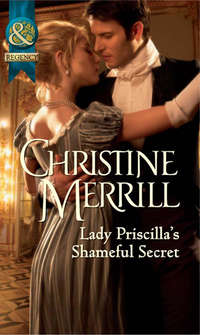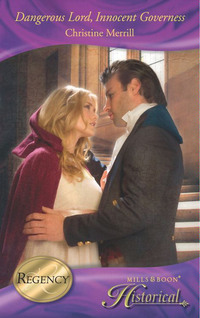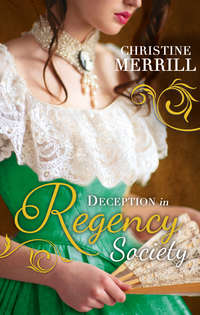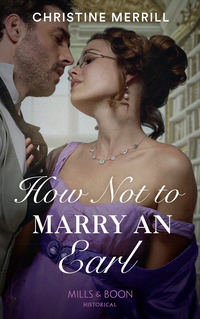
Полная версия
Regency Surrender: Scandal And Deception
It was what he’d longed to hear, since the first moment he’d seen her. So he settled back into the squabs and kissed his wife in return.
Chapter Seventeen
Could happiness be so simple as this?
Her husband loved her. And she loved him in return. His family objected, just as she had known they would. But as she had told Lord Arthur before slapping him, Stephen had a mind of his own. Efforts to part them had only bound them more tightly together. All that mattered to him was their love.
But had she told him of her feelings? They had said a great many things, while in the carriage. It was the first time they’d really talked in ages. But had she said those three, specific words that had meant so much to her when he’d said them?
They were already at home, in their respective bedrooms as maid and valet helped them out of their evening clothes to prepare for bed. She could hear Stephen’s good-natured cursing from the other side of the suite, as he tried to decide if a shave before bed was appropriate.
She smiled as her maid helped her out of the ball gown and into the nightgown that her sister had made for her. Then she called out, loud enough for the whole house to hear, ‘Do not bother with a razor. I love you, Lord Fanworth, down to the last whisker.’
There was a moment of silence, followed by a hearty laugh. ‘As you wish, Lady Fanworth.’
Margot glanced in the mirror and let out a laugh of her own. ‘Are you sure it fits?’ she whispered to the maid. ‘It is...’ The word she was looking for was indecent. The lace yoke was cut so low that her nipples peeped between the gaps in the silk flowers.
The maid nodded, then grinned at her. ‘It is very pretty, your ladyship. And I think Lord Fanworth will like it very much.’
Apparently so. He had heard this interchange as well and had manoeuvred himself so he might stare at her through the open doors of the changing room.
His valet was there as well, framed in the doorway. His eyes were fixed rigidly on the floor as he removed my lord’s boots.
Before marriage, Margot had managed quite well in two rooms with no maid. How things had changed. It was a shock to admit it, but even with the new door, the situation in Fanworth’s house seemed rather cramped. If he wished her to dress as a lady and maintain a shred of modesty in front of the staff, there was no way to share a changing room with her husband and a servant a piece.
A short time later, Stephen dismissed his valet and appeared in the doorway of her room. He was wearing the same dressing gown she had borrowed on their first night together. Despite the sheer gown she was wearing, her skin grew hot at the sight of him.
He glanced at her maid with a raised eyebrow and made a little shooing motion to signify that the girl was dismissed.
‘We are not finished combing out my hair,’ Margot argued.
‘Let me help.’ He said it as if there was no greater joy than to wait upon her. Then he took his place behind her dressing table and picked up a silver-handled brush, drawing it slowly through her curls.
Her eyes met his in the reflection of the mirror. In reflex, her nipples tightened with desire.
He noticed and smiled. Then he quickly plaited her hair and offered his hand to lead her to the bed. They had not gone two steps before she had pressed herself against him, demanding and receiving a kiss. The rest of the short journey was a staggering, stumbling laughing tangle of bodies that collapsed as their knees made contact with the mattress. Only then did he part from her long enough to look into her eyes.
‘Your maid was right. I like this. Very much.’ His fingers danced over the lace yoke of her gown, touching skin through the netting.
‘You heard?’ she said.
‘It was impossible not to. We are rather cramped,’ he admitted.
‘And I suppose your valet heard as well?’ Worse yet, he might have seen her.
Stephen kissed her ear. ‘Barker does not see or hear anything I do not wish him to.’
How like an aristocrat, to think that he controlled the senses of his household. ‘All the same, I would feel more comfortable if we could seek out larger apartments, so that the poor man will have nothing to ignore.’
Her husband did not answer immediately. He had become distracted with the lace again, trying to taste her breasts through the mesh. When he finally raised his head, they were both quite out of breath. ‘Do not worry yourself over it. Summer is half over. We will not be here much longer.’
Suddenly, she was not the least bit distracted by his attentions. ‘And where are we likely to go?’
‘Where does anyone go? London, for the Season,’ he said, taking one of her hands and kissing her arm from fingertips to shoulder, lingering for a moment to toy with the bracelet still twined about her wrist. ‘And my home in Derbyshire for autumn and Christmas. The house there has all the room you could want.’
‘But my work is here,’ she said. She had waited patiently to be of age so that she might return from school and take up the family business. She had no intention to quit it in little more than a year. ‘I have a shop to run.’
‘We will be shutting that, at the end of summer, when we leave,’ he said, as though it was something that had been discussed and agreed upon.
‘Will we?’ she said.
‘It is only common sense,’ he responded, completely oblivious to her rising temper.
‘Is it?’ she said.
‘What else would we do?’ He was undoing the little pearl buttons at her throat, preparing to remove her gown.
What else would they do? She was not sure she had an answer to that. But she had hoped, when the time came, she would have some part in making the decision. She prepared her argument.
And then, she noticed, for the first time in ages, he had been speaking freely and ignoring the small stammers, just as she did when she listened to him. If she chose to fight him, now of all times, she might lose this closeness, yet again.
He had said they would not leave until the end of summer. That meant she had time to persuade him. And judging by the solid feel of his member pressing against her leg, she had means to persuade him that she had not yet exercised. She reached to his waist and untied the sash of his dressing gown. ‘Lord Fanworth?’ she said, teasing his lips with hers.
‘Lady Fanworth?’ he responded, capturing them so he might kiss her.
She pulled away. ‘Do you love me?’
‘Did I not tell you so?’ He seemed surprised that she would ask.
‘I wish to hear it again,’ she said.
‘I would rather show you,’ he said, stripping the gown over her head and tossing it to the end of the bed.
She placed her hand lightly on his lips, stopping them before he could kiss her again. ‘But first, you must say the words. It is our fourth night together, after all. If you wish me to release you from our agreement...’
He growled. ‘By morning, you will beg me to renegotiate.’
‘But tonight...’ she reminded him. ‘Arouse me with words.’
He gave in without further struggle. ‘I love you. I worship you. I adore you.’ He paused to kiss his way down her belly. ‘Since the first moment I met you, I have been yours to command.’
To test him, she spread her legs and guided his lips to where she most wished to be kissed. And as he promised, he worshipped her. Tomorrow, she would hold him to his promise and command that they keep her business. But tomorrow was a long time away. For the moment, she was lost in the present.
Chapter Eighteen
The next day, Margot glanced around the shop, as if she had never seen it before, trying to memorise every last inch of it. She meant to broach the subject of its future tonight, at dinner. But if Stephen was adamant that it was just a brief diversion to be cast aside at the end of summer, she must savour every moment here.
She smiled grimly. Of course, if he thought such nonsense, he did not know her as well as he thought. With the servants she had been firm. With Arthur she had been violent. But with her dear Lord Fanworth there was a much more pleasurable way to work him ’round to seeing things her way.
She had no intention of closing, now that business was increasing again. After the previous evening’s party, she’d had a steady stream of customers interested in seeing the source of the jewels that had been worn by the notorious Marchioness of Fanworth.
To ease their minds about a titled lady in trade, she had retired to the private salon and plied them with tea and cakes, before selling stock and taking orders. By mid-afternoon, she had rough sketches for several custom projects to give to Miss Ross so that the girl might practise carving wax for the moulds. The front counter had sold so many buckles, hairpins and snuffboxes that it had needed restocking twice. It was the most profitable day she’d had all season.
Fanworth would be appalled.
She smiled. It was good that she had not followed her first instinct and flatly refused to obey. After an hour in her gauze-draped bed, he showed no interest in discussing the demise of her life’s dream. After a week, it was possible that he would not even remember having suggested it. And after a month, she would convince him that it had been his own idea to relocate permanently to Bath.
Such a complete victory was unlikely. But two months ago, she’d not have believed that a marquess would fall in love with her. The world was a strange and miraculous place.
There was a sharp clang from the brass bell as another customer entered the shop. ‘I wish to speak with Lady Fanworth.’ The gentleman at the front counter spoke in a voice so commanding that it carried all the way to the back of the shop. Margot did not need to see him to know that he was used to being obeyed. She got up from the divan, smoothed her skirts and went back to the main room.
But once she had seen him, there could be no doubt as to the identity of the man at the counter. The Duke of Larchmont was an older version of her husband. He had more than a touch of grey at his temples and leaned on an ivory-handled walking stick as he glared down into the cabinet of her best work as though it were nothing but tin and paste.
It would have been a lie to say he looked welcoming. But she doubted that he was as bad as the world seemed to think. After all, everyone had been quite wrong about Stephen. It was proof that she must meet the man before forming an opinion of him.
She suspected Arthur was wrong as well. If the Duke of Larchmont did not mean to accept her as daughter, he would not have troubled himself to come to the shop. He had but to ignore her to make his feelings known. If he had come to make the first move of welcome, she would be sure to give no objection. ‘Your Grace.’ She swept down into her lowest curtsy, averting her eyes.
‘Get up, girl, and let me have a look at you. Do not think you can win my favour by bowing and scraping.’ When she raised her head to look at him, he was examining her through a quizzing glass as she might look at a stone with her loupe. She remained still as he walked around her in a slow circle, continuing to treat her as if she were an unfeeling, inanimate object.
When he reached the front of her again, he gave a resigned nod. ‘I can see why Fanworth took it into his head to marry you. At least the children will be attractive. It does not matter for a boy. But there is little reason to have a girl, if she is not pretty.’
She bit her tongue to keep from explaining that the gender and appearance of her unborn children were not things that could be planned or predicted. Even if they were, it would not be left to him.
He sighed. ‘I suppose it is too much to hope that you have wits.’
‘I like to think so, your Grace,’ she said, struggling to be polite.
‘You have learning? Languages?’
‘French, of course,’ she said. ‘My mother spoke it.’
‘Immigrants.’ His lip curled. ‘And manners. Did she teach you those?’
She tried not to think of the blow she had struck when last trying to prove her worth and gave a polite nod in response.
He nodded back. ‘Better to remain silent, as Fanworth does. Especially when you are lying.’
‘I assume you are referring to last night’s altercation with Lord Arthur,’ she said, as calmly as possible. ‘He was not behaving as a gentleman.’
‘We are discussing your behaviour, not his,’ the duke replied.
If he expected her to apologise, he was about to be disappointed. ‘If such rudeness is customary from him, next time I will be prepared for it and refuse to acknowledge him, should he speak to me.’
The duke laughed. ‘Just as my son does to me. The two of you are very well suited.’
‘Thank you,’ she said.
‘It was not meant as a compliment.’ He set his stick across the glass of the counter beside them and leaned forward, glaring into her eyes. ‘It is too late to be rid of you, short of bundling you into a sack and throwing you into the river like the mongrel you are. But the least you can do is to refrain from embarrassing the family further than you already have.’
‘I have no wish to bring shame upon my husband,’ she said. It fell short of allegiance to the Larchmont name, but it was the best she could manage.
‘That is more than he can manage for himself,’ the duke said, with a sneer. ‘And not nearly what is required, if you are to be the future Duchess of Larchmont. I expect you to deport yourself as a lady and not behave like some common tradeswoman.’
She hoped that he meant something simple, like being dressed by the right modiste or not slapping members of the immediate family in public. ‘I will do my best to behave in a way that honours your name, your Grace. Last night was an aberration and it will not be repeated. Give me time and I will prove to you that the manners of a common tradeswoman are no different from those of a well-born lady.’
‘I have no desire to learn anything of the manners of your class,’ he said with the sour frown of someone who has seen something awful in the gutter. ‘For as long as there has been a Larchmont, there has been no such creature in this family. There will not be one now.’
He put his full weight upon the counter and leaned forward until his face was inches from hers. ‘You will close this shop, immediately. Then you will retire to Derbyshire for as long as it takes for your past to be forgotten.’
Was she really so repellent a choice that she must be hidden away from society? Even her husband did not demand such extreme measures when planning for the future. She took a breath, being careful to control her temper. ‘I am sorry that our marriage displeases you, your Grace. But I cannot simply close the shop with no notice. There are employees to be provided for, creditors to pay, stock to liquidate... Even if I wished to, it is more complicated than just closing the doors and walking away.’
‘I beg to differ.’ Without warning, he shifted his weight and pushed down, hard, on the cane resting on the countertop. The glass under it cracked from end to end with a musical clink.
One of the shop girls let out a frightened shriek and Jasper took a step forward, as if fearing he might need to protect her from further violence.
Margot held a hand up to stay him and calm the girl.
The duke ignored them all and picked up the cane. Then, he stared down at the ruined glass. ‘This is only my first visit to your little shop. But it is obviously a very dangerous place. There is no telling what might happen to the staff, or the customers, should it remain open. As I said earlier, you must close it immediately.’
She stared down at the glass as well. When she had imagined incurring the displeasure of the peer, she had thought it would be a genteel punishment: a direct cut or a few harsh words. She would never have imagined vandalism and direct, physical threats.
It had been naïve of her to think that anything good would result from this meeting. The Duke of Larchmont punished her husband for an imagined weakness and doted on Arthur, who had not thought twice about sending an innocent woman to the gallows for a theft he’d committed. To find that such a man was warped by pride and the need to control others should not have been a surprise.
And now, he cupped his hand to his ear. ‘Perhaps I am going a trifle deaf with age. I did not hear an answer.’
She had not answered, because there was no point in reasoning with a madman. For now, she needed to do what she could to get him from the shop. Then, she needed time to think. Once again, she bit back the things she really wanted to say, and managed, ‘I understand, your Grace.’
‘See that you do.’ With that, he gave a single, sharp tap at the centre of the crack. The ruined glass plate shattered, the shards falling to cover the diamonds on display beneath.
Chapter Nineteen
Something had changed.
After the previous evening, Stephen assumed that almost all the difficulties between them had been sorted. She knew the truth about the rubies. He had been able to speak freely again. They had shared her bed. And that had been after he’d mentioned his plans to take her away at the end of the summer.
He was still awaiting the argument on that subject. He’d win it, of course. There could be no other result. But for such a tiny armful of woman, Margot was surprisingly strong willed. That she had accepted his words without question or contradiction made him suspicious.
But last night, he’d had no desire to question her on her feelings. Talking had been the last thing on her mind as well. And it would have taken more strength than he possessed to resist the new Lady Fanworth when she was dressed in nothing but a thin lace gown and an emerald bracelet.
She was almost as alluring now, seated across the dining table from him in blue silk. The lace and sequins on the bodice drew his eyes to the gentle slope of her breasts, firing his imagination for what might happen when dinner was finished and they had retired for the night.
But there was no sign that she was having similarly pleasant thoughts. She was thinking about something, he was certain. She stared down into her plate with a slight frown, but did not eat.
‘Is the food not to your liking?’ He had thought the matter settled.
‘No,’ she said. ‘It is delicious.’ Then she picked up her fork and began to eat, as though seeking an excuse to avoid conversation.
In an effort to distract her, he questioned her about her day. She answered in monosyllables, if at all. It was a strange inversion of the last weeks, where she had been the one to talk and he had evaded. Now, when at last he was ready and eager to speak with her, she spoke as few words as possible.
Then, he noticed the handkerchief wrapped tightly around one of her fingers. ‘What happened there?’
She looked up, startled. ‘There was an accident. In the shop. Broken glass. As I was cleaning up, I cut myself.’
Hs stood up and went to her side, taking her hand gently in his and unwrapping the cloth. ‘Does it hurt?’ It did not appear to be deep, but she looked near to tears.
‘It is all right,’ she said.
‘You work too hard. You must take better care of yourself.’ He kissed the finger and wrapped it again.
‘I have been thinking that, as well,’ she said and took a deep breath. ‘In fact, I think you are right about giving up the shop.’
Of all the things likely to come out of her mouth, he had not expected this. ‘At the end of summer,’ he reminded her, feeling uneasy.
‘Or sooner,’ she said. ‘Tomorrow is Sunday and we are closed. I do not have to worry for a day or two.’
‘You do not have to worry at all,’ he assured her. When he had first decided that they must marry, hadn’t that been his fondest desire: that she should never have to worry about anything again?
But she did not seem to hear his reassurance. She was staring down into her plate again, poking listlessly at the food with a fork. ‘Perhaps, next week, it would be possible to find Mr Pratchet... He wished to own it. I might sell it to him. Or not...’ The words were fairly pouring out of her, now that she had begun to speak. But she did not seem any happier for her decision.
‘Before we married, you were quite adamant about Mr Pratchet not taking control. This is quite a change of opinion,’ he said cautiously.
‘I can think of no one else,’ she said, setting her fork aside as though she had lost her appetite. ‘Justine would not want it. Her memories of the place are quite horrible. When it came fully into our control, she wanted to close it and forget it had ever existed.’
‘Women are not meant to run businesses,’ he said, repeating what he had always assumed to be true.
She gave him a tired look, as though she had heard the words too many times before. ‘Perhaps not. But there was little choice in the matter, since my father had daughters and not sons.’
He started to speak, and then stopped. Logic dictated that if a business owner had daughters, then the business should fall to the men they married. But that would have meant that she should have married Pratchet, who wanted the business more than the woman, and not a man who wanted her, but had no need of a jewellery shop. Perhaps that was the logical argument. But when it ran contrary to what he had wanted to do he’d had no problems ignoring it. Why should it be any different for her?
‘We sisters knew that some day the business would fall to us and we prepared accordingly. We had played in the shop since we were little. And though Mr Montague was a horrible man, he was an excellent jeweller. He taught us everything there was to know about the stones, the metals and the making of jewellery. We learned our letters and our numbers.’ She smiled faintly. ‘Arithmetic works just the same for a woman as it does for a man. If you were to examine my bookkeeping, you would find it kept in a reasonable hand and totalled properly at the bottom of the ledger.’
Then the smile was gone again. ‘But Mr Montague really only wanted the money. And Justine wanted her freedom. I was the only one who really cared about the shop. I planned for years so that I might be ready to take it on. And I have done well. Or, at least, I did. If I cannot have it...’
She spoke of the place as if it were a living thing. And a precious one, at that. It was not just some stray dog that could be put out when it became too inconvenient to keep. By the look on her face, she would be no more willing to abandon a child then she would shutter the windows and lock the doors of de Bryun’s.
‘Are you quite sure you are ready to leave it?’ She had come to the decision on her own, just as he’d wished. Why did it not make him happy?
‘You wish me to close it, do you not?’
‘Well, yes.’ He did. Or, at least, he had. Now, he was not so sure. ‘But when we have discussed it before, you have been quite adamant on the need to ensure the livelihoods of your staff.’
‘I must see to their safety as well,’ she said. It was an odd statement, after the assurances she had given him about the minimal risks involved in her job.
‘You promised me before that if you were worried for your safety you would let me protect you,’ he reminded her.
Hope flared in her eyes for a moment. Then the look of misery grew deeper, as she became even more obedient. ‘Of course. But as you pointed out to me, yesterday, it will be difficult to run the place with the responsibilities I am likely to have as your wife.’
‘That is correct.’ He thought of his mother and what she did to fill her days. She called on friends in the morning. In the afternoon, she sometimes shopped. She went to dinners in the evening. When they were home, she might visit the sick and the poor. If she stopped doing any of those things, it would not have mattered one whit to the duke, or the people around her. She kept busy. But he would hardly have called what she did ‘responsibilities’.
But Margot had pointed out to him on several occasions that she already had them. It was ludicrous to insist that she accept idleness for propriety’s sake. ‘Perhaps there might be a way to keep it open part of the year. Summering in Bath does not conflict with a London Season.’ What was he saying? Hadn’t it been his wish that she stop work and devote herself to him? But now that she was considering it, he felt no happier about it than she did.








